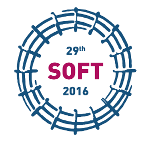Speaker
Bruno Santos
(Instituto de Plasmas e Fusão Nuclear)
Description
The Advanced Telecommunications Computing Architecture (ATCA) standard defines a high performance technical solution that meets the requirements for fast controllers on large-scale physics experiments like ITER. This platform provides high throughput, scalability and features for high availability such as redundancy and intelligent platform management which are essential for steady state experiments.
An ATCA Control and Data Acquisition (CDAQ) Board was developed for the ITER Fast Plant System Controller (FPSC) project, which is already available in the ITER Catalog. This board comprises 48 galvanic isolated analog and/or digital channels configurable as input or output with digital signal processing capabilities performed by a Field Programmable Gate Array (FPGA).
The Enhanced Physics and Industrial Control System (EPICS) is a set of open source software tools, libraries and applications used worldwide to create distributed soft real-time control systems for scientific instruments. To provide the hardware integration in the EPICS environment, a device support has been developed as a software layer, which is comparable to the abstraction layer provided by the device driver on the Operating Systems.
This paper presents the implementation and test of an EPICS Device Support for the ATCA CDAQ Board which provides templates for easy configuration of the entire system. This solution also allows simultaneous and independent acquisition by each board, providing hotplug features which support insertion and removal of boards while keeping other modules and the overall system running.
Operation with several boards and different versions of Linux operating system was performed and the results are presented.
Co-authors
Alvaro M. Combo
(Instituto de Plasmas e Fusão Nuclear, Instituto Superior Técnico, Universidade de Lisboa, 1049-001 Lisboa, Portugal)
Antonio J.N. Batista
(Instituto de Plasmas e Fusão Nuclear, Instituto Superior Técnico, Universidade de Lisboa, 1049-001 Lisboa, Portugal)
Antonio Rodrigues
(Instituto de Plasmas e Fusão Nuclear, Instituto Superior Técnico, Universidade de Lisboa, 1049-001 Lisboa, Portugal)
Bernardo B. Carvalho
(Instituto de Plasmas e Fusão Nuclear, Instituto Superior Técnico, Universidade de Lisboa, 1049-001 Lisboa, Portugal)
Bruno Goncalves
(Instituto de Plasmas e Fusão Nuclear, Instituto Superior Técnico, Universidade de Lisboa, 1049-001 Lisboa, Portugal)
Bruno Santos
(Instituto de Plasmas e Fusão Nuclear, Instituto Superior Técnico, Universidade de Lisboa, 1049-001 Lisboa, Portugal)
Carlos M.B. A. Correia
(LibPhysUC, Departamento de Física, Universidade de Coimbra, 3004-516 Coimbra, Portugal)
Jorge Sousa
(Instituto de Plasmas e Fusão Nuclear, Instituto Superior Técnico, Universidade de Lisboa, 1049-001 Lisboa, Portugal)
Miguel Correia
(Instituto de Plasmas e Fusão Nuclear, Instituto Superior Técnico, Universidade de Lisboa, 1049-001 Lisboa, Portugal)
Nuno Cruz
(Instituto de Plasmas e Fusão Nuclear, Instituto Superior Técnico, Universidade de Lisboa, 1049-001 Lisboa, Portugal)
Paulo F. Carvalho
(Instituto de Plasmas e Fusão Nuclear, Instituto Superior Técnico, Universidade de Lisboa, 1049-001 Lisboa, Portugal)

